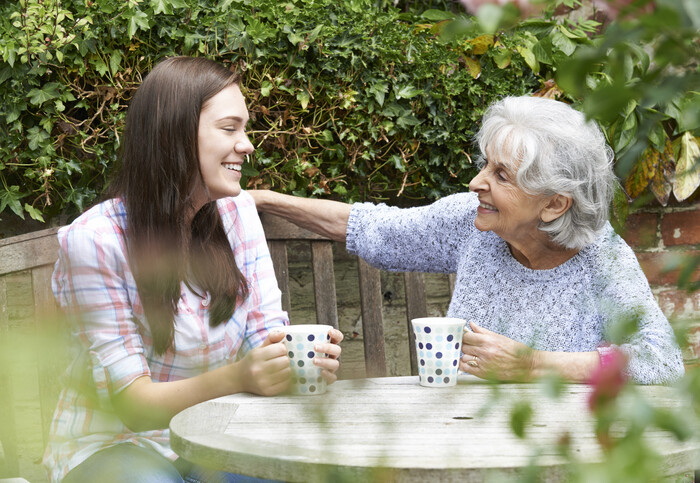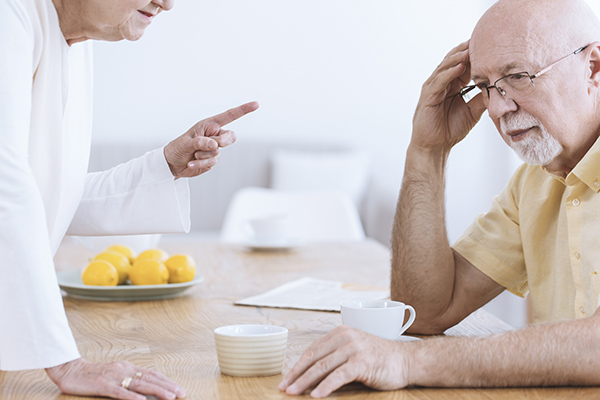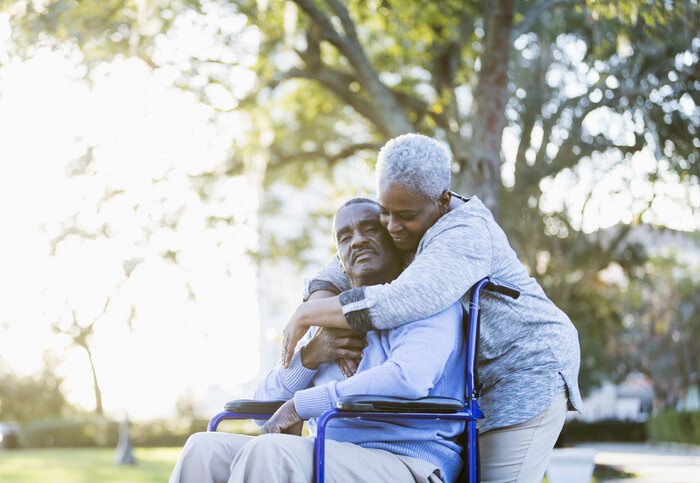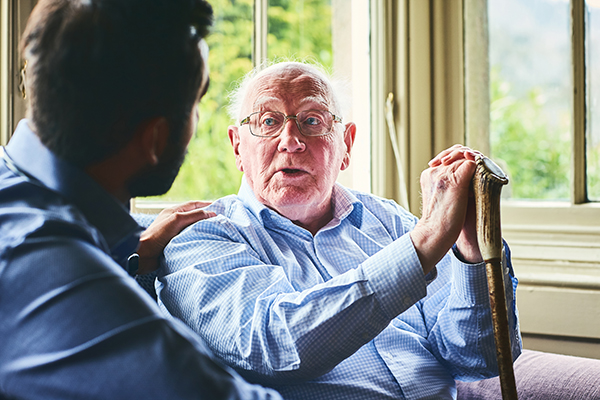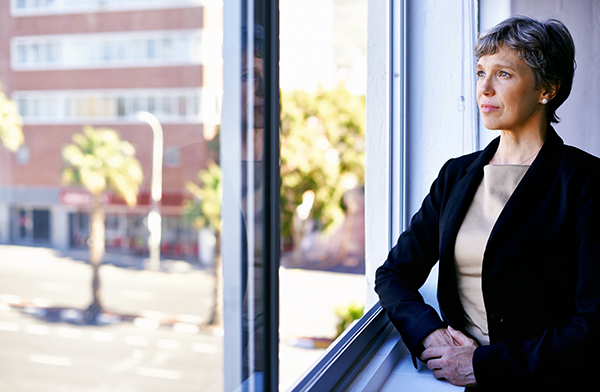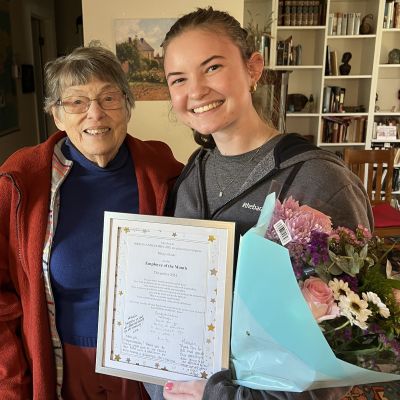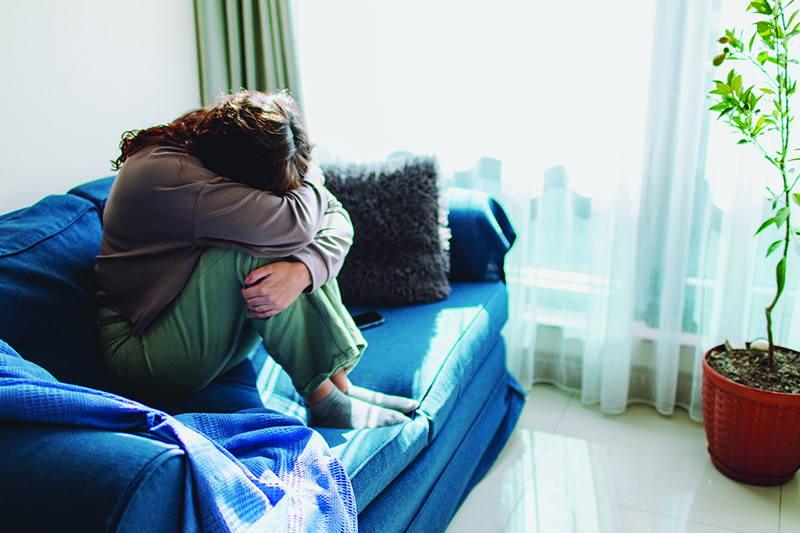Care Manager
Overcome Senior Isolation and Loneliness with These Tips
We know that socialization is vitally important for our overall emotional (and even physical) wellbeing – but we also know that senior isolation and loneliness is an epidemic in America. With the hectic pace of life, it’s difficult for families and friends to provide the full measure of social interaction needed to keep loneliness at bay for older adults, who are often homebound or unable to get out as much as they’d like.
But the mother of invention truly is necessity, and the need for creative socialization solutions has sparked some interesting innovations:
The Chat Bench
Thanks to the police department in the southwest England town of Burnham-On-Sea, several benches now boast signage that boldly proclaims, “The Happy to Chat Bench: Sit Here if You Don’t Mind Someone Stopping to Say Hello.” And, stop they do! It’s a lovely … Read More »
Women and Alzheimer’s: Why the Risk Is So Much Greater and How to Help
Understand the trend between women and Alzheimer’s and discover how you can help someone you love who is battling the disease.
Researchers are finally beginning to get a grip on the imbalance between Alzheimer’s diagnoses in women and men. Currently, as many as 2/3 of those with Alzheimer’s in the U.S. are female. As scientists begin to understand the particular nuances behind the increasing trend of women and Alzheimer’s, we can begin to address the problem and find solutions.
According to the Alzheimer’s Association’s Director of Scientific Engagement, Rebecca Edelmayer, “Women are at the epicenter of Alzheimer’s disease as both persons living with the disease and as caregivers of those with dementia. Over the last three years, the Alzheimer’s Association has invested $3.2 million into 14 projects looking at sex differences for the disease and some of the … Read More »
Warning: These Common Medications May Increase Dementia Risk
Certain medications may now be linked to an increased dementia risk.
They are currently recognized to cause various short-term side-effects, for example, memory issues and confusion, but new research links some of the stronger anticholinergic drugs (like those prescribed for Parkinson’s disease, epilepsy, depression, and overactive bladder) to a markedly higher dementia risk.
The research involved two groups of seniors: 59,000 patients with dementia, and 225,000 without. Approximately 57% of those with dementia, and 51% without, were supplied a minimum of one (and up to six) potent anticholinergic medications. Considering other established dementia risk factors, the outcomes were an astounding 50% increased risk of dementia in individuals who were taking strong anticholinergics daily for three or more years, with the highest risk to people who received a dementia diagnosis before age 80.
It is critical to note that … Read More »
How to Empower Seniors to Take Control for Better Chronic Health Care
Seniors know best what they’re dealing with; empower them to take control of their chronic health care needs.
When it comes to chronic health care, seniors are the experts, hands down, with up to three out of four seniors affected by a number of conditions that are ongoing, necessitate long-term medical treatment, and place restrictions on activities. With the never-ending barrage of bloodwork as well as other tests, physicians’ appointments and procedures, and medications, managing chronic diseases usually takes both a physical and emotional toll, and may quickly become daunting.
Dr. Mary Tinetti, chief of geriatrics and internist at Yale School of Medicine, said, “Once you get three, four, or five and six diseases, several things happen: Number one, almost guaranteed, trying to get one of these diseases under control is going to make one of the other … Read More »
7 Ways to Ease Hygiene Care for Someone with Alzheimer’s
Make hygiene care for someone with Alzheimer’s more comfortable with these tips.
Of the numerous challenges related to caregiving, the Alzheimer’s Association indicates that the most prevalent challenge is hygiene care for someone with Alzheimer’s, for various reasons:
Decreased sense of vision and smell
Comfort found in familiarity (i.e., desiring to wear exactly the same clothes repeatedly)
The challenges of bathing, compounded by cognitive impairment and confusion
Fear of falling, the noises and feelings associated with the water, and more
Cajoling, arguing, and logical thinking are hardly ever practical strategies with those impacted by Alzheimer’s or another form of dementia. Rather, attempt these innovative techniques if your loved one resists hygiene care:
Arrange the bathroom in advance so that the room will likely be comfortable and you will not have to juggle collecting supplies along with assisting your senior loved one. Warm the … Read More »
Caregiving Tips to Ensure You’re Motivating Without Bullying
Make sure you’re not crossing the line from motivating to bullying with these caregiving tips.
As a family caregiver, you obviously encounter an array of feelings throughout the day: shared laughter over a joke with your senior loved one; worry due to a health concern; and certainly, from time to time, irritation. We want only the best for those we love, and if a senior loved one is resistant to doing an activity we realize is beneficial, it could be tough to identify the most appropriate response.
The key is to try to offer motivation and support, while remaining cautious not to ever cross the line into bullying your senior loved one. These caregiving tips are good to remember:
There’s no one-size-fits-all. An approach that has worked on a single occasion may perhaps be entirely ineffective in another. In … Read More »
End-of-Life Care Tip: Participating in Tough Conversations
When providing end-of-life care, one of the best gifts you can offer is a listening ear.
Sharing what’s on our hearts with those we love is never more important than when someone is nearing the end of life. There are often unspoken sentiments and unresolved issues that, once verbalized, can bring peace and a deeper connection with our loved ones in their final days.
As Dr. Jessica Zitter, physician in critical and palliative care medicine at Highland Hospital in Oakland, CA explains, “Those are opportunities for people to take stock and say, ‘I want to be more intentional about how I want to relate to people in my life.’ Death should really be seen as the last opportunity that you have to make amends and clean things up before you’re in the next world, wherever that may be.”
Read More »
5 Tips to Effectively Manage Paranoia in Seniors
Paranoia in seniors with dementia can be challenging, but these tips can help.
“I’m telling you, there’s a dog in my closet! I hear it growling all night long. We’ve got to track down its owner!”
Listening to a senior loved one express concerns like this that you know to be untrue is distressing – however, not unheard of. Your first instinct may well be to try and rationalize with the person with a response such as, “Nonsense! There is no way a dog could have gotten into the closet!” However, for various reasons, this could be the least effective technique to handle unreasonable thoughts and paranoia in seniors.
Instead, we at Hired Hands Homecare propose the following tactics which will help bring back a sense of calm and wellbeing:
First, schedule an appointment with the senior’s physician. It … Read More »
How to Help Someone with Parkinson’s from a Distance
If you’re wondering how to help someone with Parkinson’s disease when you live out of the area, we have four suggestions for you.
The days when extended families lived together on neighboring plots of land are, unfortunately, a thing of the past in many cases. With loved ones spread apart, it’s not always possible to provide the caring, hands-on care and support that older family members often need, especially when a chronic health condition – like Parkinson’s disease – creates additional concerns.
Yet even from a distance, there are still plenty of ways to assist. The Michael J. Fox Foundation offers these tips on how to help someone with Parkinson’s from afar:
Get organized. Take and keep detailed notes about medications being taken, treatments, emergency contacts, and other aspects of the person’s care needs. A digital version of this … Read More »
Are You Torn Between a Career and Caregiving?
Many family caregivers are faced with the difficult decision to choose between a career and caregiving responsibilities.
Not long ago, actor Rob Lowe brought caregiving into the spotlight by sharing his story of caring for his mother and the toll it took on his own life. He said, “When you’re caring for a loved one, there’s nothing you won’t do to give them as much comfort and peace of mind as you can possibly provide. Often that means you’ll skip your social obligations, wreck your diet, suffer sleep deprivation, and even risk your career.” So, does that mean you need to choose between a career and caregiving for an older loved one?
Obviously, this topic is not anything new to the 75% of the United States workforce who are concurrently providing care for a parent at home. Based … Read More »


